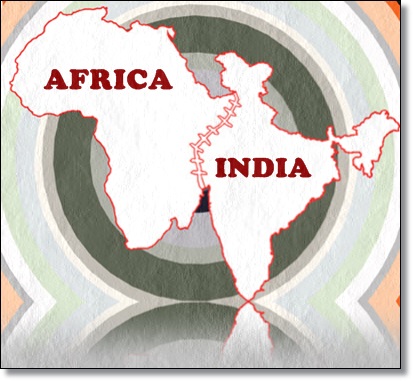India-Africa: Enhancing Partnership

 |
Partnership is not about hierarchy. It is not about bureaucracy. It is about using knowledge and resource bases as multipliers. The notion of partnership is a central one to the ITC. As a joint organisation of the United Nations and the World Trade Organisation and as the only UN agency with a specific mandate to work with SMEs on the ground, our very DNA corresponds to linking and engendering expertise to build capacity and market opportunities.
Trade between India and Africa has increased by more than 30% annually between 2005 and 2011, and there is the expectation that this could rise to $90 billion by 2015. India has moved from being the 13th largest exporter to Africa in 2001 to become its 5th largest exporter in a decade. Similarly, India was the 14th largest importer from Africa a decade ago and is now its 3rd largest accounting for almost 7 percent of Africa’s total exports. In other words, this partnership is a sound investment which is delivering.
Indian investments in Africa in banking, mining and metals industries, industrial construction projects, telecommunications, information and communication technology (ICT), energy and automobiles facilitates the transfer of technology and employment creation. Africa has much to gain from Indian expertise and knowledge especially in terms of ICT and development of innovative solutions to address private sector priorities. And India has much to gain from increasing their share in the African market. Africa remains poised to be the growth miracle of this century. The statistics increasingly show that with the rise of the middle class in Africa, the youth leaning demography, the technological leap frogging which has been occurring and the tentative steps into global value chains, Africa is the market place- and could be in some respects- the supplier of the future.
The net gainers of this will be the SMEs. As home to 1.3 million SMEs which generates over 60% of employment and contributes half of its total exports, India understands SMEs. It understands what SMEs need to be able to trade: effective trade facilitation, access to finance, and clear and transparent regulatory frameworks. Africa is a continent of SMEs- both formal and informal. These SMEs are the backbones of the economies and the incubators of innovative thought and solutions. They create platforms for women to step into the world of business and serve as hands on training grounds to the youth who will lead the development of the continent in the future.
There is much that Indian SMEs can share with African SMEs. There are informal partnerships, knowledge sharing, mentoring, transfer of technology, especially in the agri-processing sector, which can help address food security concerns, and many other initiatives which can populate this partnership.
One example of this is in the area of services. Everyone has heard about ‘Incredible India.’ Now how can ‘Incredible India’ share its expertise in creating an “Amazing Africa”? Services can spear-head socio-economic development across the African continent, especially in the ICT sector, boosted by India’s Pan-African e-Network Project which offers tele-education and telemedicine solutions to around 50 African countries.
Another area of India’s strength is technology. India is the home of JUGAAD or frugal innovation. India’s sharing of appropriate technologies, JUGAAD or not, is not new in Africa.
All of us have heard of the huge presence of community water-hand-pumps from India that dot the African country side. An Indian-African Partnership underpinned by JUGAAD will result in opportunities arising from adversity: the ability to do more with less; to think and act flexibly to find simple solutions for increasingly complex problems; and most of all practicality that helps eliminate complexity.
By Ms. Arancha González
Executive Director, International Trade Centre.
